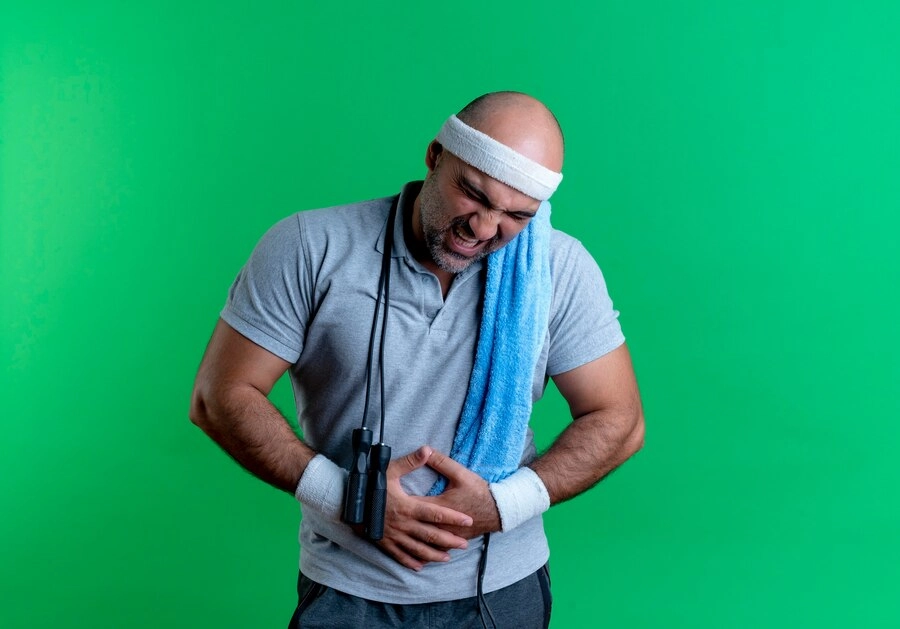How to Check for Hernia?
Category: General Surgery
A hernia occurs when an organ or fatty tissue pushes through a weak spot in the surrounding muscle or connective tissue. While some hernias may be painless, others can cause discomfort, swelling, or visible bulges. Early detection is crucial to prevent complications such as strangulation or obstruction, which may require emergency surgery.
At Lokmanya Hospital, Pune, patients receive expert guidance for hernia treatment in Pune. With experienced hernia specialist doctors, advanced diagnostic tools, and personalized care plans, the hospital ensures accurate diagnosis and effective treatment, making it a trusted choice for hernia patients.
How to Check for Hernia
Recognizing the signs and performing preliminary checks at home can help you seek timely medical advice. However, a professional evaluation is necessary to confirm the diagnosis. Here are the steps and signs to look out for:
1. Observe for Visible Bulges
Look for any unusual swelling or lumps in the abdomen, groin, or near the belly button. Hernias often become more prominent when standing, coughing, or straining.
2. Check for Pain or Discomfort
Mild to moderate pain or discomfort at the site of the bulge, especially during physical activity or lifting, is a common symptom. Persistent pain should be assessed by a hernia specialist doctor in Pune.
3. Gentle Self-Palpation
Carefully feel the area for tenderness or a soft lump. While this can indicate a hernia, avoid pressing too hard, as this may cause discomfort or worsen the condition.
4. Monitor Digestive or Urinary Symptoms
Some hernias, particularly inguinal or femoral types, may cause digestive disturbances, constipation, or urinary discomfort. Noticing these changes early helps your doctor plan appropriate treatment.
5. Seek Professional Diagnosis
Ultimately, only a hernia doctor in Pune can confirm the condition through physical examination, imaging tests like ultrasound or CT scans, and a thorough review of your symptoms.
Why Choose Lokmanya Hospital for Hernia Treatment?
Lokmanya Hospital offers a team of skilled hernia specialist doctors in Pune who specialize in identifying and treating all types of hernias. Using modern diagnostic tools, the hospital ensures accurate evaluation and personalized treatment planning for each patient.
From initial consultation to post-operative recovery, Lokmanya Hospital provides end-to-end hernia treatment in Pune. Patients benefit from minimally invasive procedures, expert surgical care, and detailed follow-up guidance, making it one of the most trusted hospitals for hernia care in the region.
Conclusion
Early detection is key to effective hernia management. Regular self-checks, awareness of hernia symptoms, and timely consultation with a hernia doctor in Pune can prevent complications and ensure successful treatment.
Lokmanya Hospital, Pune, combines expert surgeons, modern diagnostic tools, and personalized care, making it the ideal destination for hernia evaluation and treatment.
FAQs
1. What are the common symptoms of a hernia?
Visible bulges, pain or discomfort, and occasional digestive or urinary issues.
2. How can I check for a hernia at home?
Observe for lumps, gently palpate the area, and note pain or swelling, especially when standing or straining.
3. Who is the best hernia doctor in Pune?
Lokmanya Hospital has experienced hernia specialist doctors in Pune offering accurate diagnosis and treatment.
4. Can hernias go away on their own?
No, hernias do not resolve without treatment and may worsen over time.
5. When should I consult a doctor for a hernia?
Seek medical advice if you notice a persistent bulge, pain, swelling, or digestive/urinary issues.
6. How is a hernia diagnosed?
Through physical examination, patient history, and imaging tests like ultrasound or CT scans.
7. Are all hernias treated with surgery?
Most hernias require surgery, but small, asymptomatic hernias may be monitored under doctor supervision.
8. Why choose Lokmanya Hospital for hernia treatment?
It provides expert surgeons, advanced diagnostics, minimally invasive procedures, and personalized care plans for safe, effective treatment.
Previous blog

How to Get Rid of External Piles at Home
Next blog






